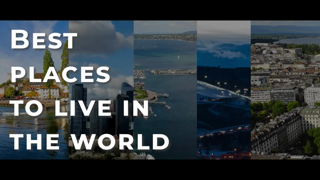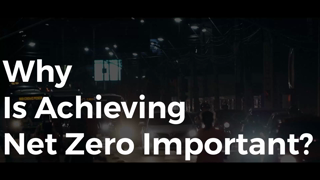Shafaq News / In the wake of the BRICS summit scheduled for Tuesday, August 22nd, the global landscape will inevitably undergo profound changes. This sentiment is most fervently held by China, Russia, India, Brazil, and South Africa. These nations, collectively representing nearly half of the world's population, around 30% of the global GDP, and over 16% of the global trade volume, are betting on the creation of a multipolar world. This term now signifies a departure from Western unilateralism, particularly embodied by the United States.

The upcoming 15th BRICS summit in Johannesburg will deviate from conventional standards, as it marks the first gathering since the onset of the COVID-19 pandemic. Its agenda is packed with pivotal matters against the backdrop of global tension stemming from the Ukrainian conflict, escalating latent frictions in East Asia, and the readiness of proxy fronts along African coastal regions following the Niger coup.
Observers assert that the summit, convening 67 world leaders, will usher in crucial decisions concerning the initiation of a joint financial currency, thereby endeavoring to diminish the dominance of the US dollar in the global currency arena. Additionally, the summit aims to bolster the use of member countries' local currencies in inter-trade operations and to establish mechanisms for shared payment systems. Furthermore, the gathering will contemplate membership requests from countries such as Iran, Saudi Arabia, Turkey, Algeria, Egypt, and Argentina.
Political analysts emphasize that the strides taken by the BRICS group toward these goals unquestionably signal seismic shifts in the global power balance. They also indicate that the US, which has predominantly dominated the world stage since the collapse of the Soviet Union, is gradually losing its grip on political, economic, and possibly military fronts.
While the US defense budget has reached a record-breaking $858 billion, the combined military expenditure of the BRICS nations currently stands at $400 billion, alongside a cumulative military personnel of 11 million and approximately 6,500 nuclear warheads (possessed by China, Russia, and India).
Despite projecting an image of a collective challenging Western hegemony, the prestige of BRICS has experienced a setback as it failed to secure the physical presence of Russian President Vladimir Putin (he will participate via video technology). South Africa faced Western pressures regarding his attendance due to an international arrest warrant issued against Putin by the International Criminal Court pertaining to his role in the Ukraine conflict. However, Foreign Minister Sergey Lavrov will represent Moscow at the summit, while Chinese President Xi Jinping, along with leaders from Brazil, India, and South Africa, are set to attend.
Notably, the Johannesburg government recently announced that it did not extend an invitation to French President Emmanuel Macron for the summit, despite numerous other heads of state and their governments being invited to participate.
Even in a symbolic sense, BRICS stands out as one of the most prominent indicators of the rise of alternative powers in contrast to the European-American duopoly that dominated international affairs for the past three centuries. This trajectory has gained further momentum since the US assumed more solitary control over geopolitical and economic conflicts following the Cold War's conclusion with the Soviet Union in 1991.
Through its share of the global economy, BRICS surpasses the Group of Seven (G7) in terms of influence. The current member nations of BRICS collectively account for 40% of the world's land area, a percentage that is bound to grow with the inclusion of potential new members. Since its inception at the 2009 summit, BRICS has openly pursued becoming a global economic powerhouse, challenging the unipolar dominance of the West led by the US. This pursuit is centered around creating a multipolar world order.
Historically, BRICS had remained somewhat closed to new members, particularly after South Africa's late inclusion. However, it is now endeavoring to expand its membership. New members would be expected to adhere to the group's objectives, which encompass combating poverty, fostering sustainable development, enhancing economic and social integration, strengthening security and peace, ensuring economic growth and political stability, and reforming international financial institutions to grant emerging economies a stronger voice, all while enhancing food security.
Observers highlight that among the most significant moves indicative of this trend towards independence and dismantling US unilateralism was China's decision in 2013 to launch the "Belt and Road Initiative" shortly after a BRICS summit in Durban, South Africa, in the same year. This inclination is also evident in BRICS' decision to establish the "New Development Bank" during the 2015 summit in Ufa, Russia. Based in Shanghai, China, this bank is positioned to be an alternative to the World Bank, traditionally considered the financial arm of Western global dominance, with an estimated capital of around $100 billion.
According to the United Nations Conference on Trade and Development (UNCTAD), "Foreign direct investment (FDI) played a crucial role in the growth of BRICS economies since 2001, with annual FDI flows to the bloc increasing more than fourfold from $84 billion in 2001 to $355 billion in 2021, significantly contributing to total fixed capital formation."
The summit held in Saint Petersburg, Russia, in November 2020 was in partnership with the Shanghai Cooperation Organization (SCO), another alternative bloc to Western dominance that formed in 2001. It serves as another significant indicator of ongoing global shifts. Iran officially joined the SCO in July of the previous year. According to some analysts, BRICS serves as the "economic-financial arm" of the SCO, a phenomenon that is still evolving.
In recent months, estimations from experts and analysts have gained traction, suggesting that Russia's engagement in the Ukrainian conflict has spurred accelerated actions by Moscow and Beijing, as well as other BRICS nations, towards ensuring financial independence away from the US dollar. This strategic shift follows the rapid imposition of sanctions that affected Russia's global relations, trade interests, and economic assets.
These sanctions served as a wake-up call for BRICS leaders, urging them to explore new financial options to break free from the "tyranny" of the US dollar, which has been frequently utilized to besiege and undermine countries and populations in recent decades, as evidenced in Iraq, Iran, Syria, Lebanon, and others.
Although the global blocs and alliances appear to align interests, objectives, and convergence among their member states, they simultaneously reveal the power struggles of major nations. This shift is transitioning from outright military warfare to economic interest conflicts, all aimed at ensuring continuity and prosperity, even if it comes at the expense of other nations or blocs. At times, these objectives inevitably lead to recourse in conflict and division.
If BRICS serves as an indicator of the rise of alternative blocs, history has also seen the rise and fall of other alliances. For instance, the Warsaw Pact (established in 1955) countered the North Atlantic Treaty Organization (NATO), which represented Western Europe and the United States. Additionally, the Southeast Asia Treaty Organization (SEATO), founded in 1954 with US support to counter Moscow's influence, ultimately fell.
The Baghdad Pact (formed in 1955), which included Iraq, Iran, Turkey, Britain, and Pakistan, also collapsed. This pact aimed to counter Soviet expansion and the Nasserist revolution.
The Rio Pact (1947) was the first post-World War II alliance, encompassing American nations. Yet, it now holds little significance in the face of Washington's absolute dominance.
Nonetheless, active global alliances persist. Alongside NATO, formed in 1949, there is the Shanghai Cooperation Organization (SCO) and the Comprehensive and Progressive Agreement for
Trans-Pacific Partnership (CPTPP), established in 2018 after the US' withdrawal under the administration of former President Donald Trump. The CPTPP includes Australia, Brunei, Canada, Chile, Japan, Malaysia, Mexico, New Zealand, Peru, Singapore, and Vietnam, collectively representing around 15% of the global GDP.
Exclusive: Shafaq News Agency.
https://shafaq.com/en/Report/Evolving-global-alliances-Navigating-complex-geopolitical-shifts

